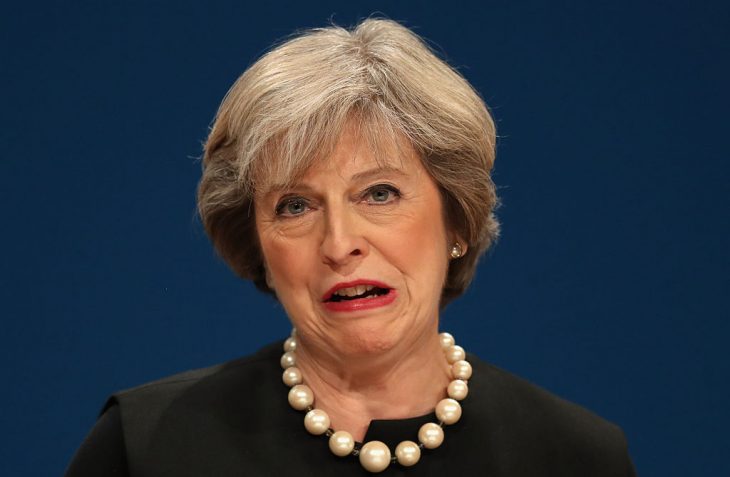Remember David Cameron’s renegotiation with Brussels in the run-up to the referendum? There’s a good chance you’ve probably forgotten; after all, even the Prime Minister wasn’t keen to talk up his paltry deal. Yet there’s a danger of history repeating itself if peers have their wicked way, warns the Sun. ‘Peers and rebel Tory MPs’ are keen to tangle up Theresa May with a veto on whatever she agrees with the EU, the paper warns. This would be a mistake. It’s clear that Cameron’s renegotiation ‘failed because EU leaders didn’t take him seriously’. And if Brussels ‘knew the Prime Minister might be sent back to compromise time and again’ they’d be likely to try and play ‘hardball’ again, says the Sun. Instead, the Article 50 bill which is, once again, being debated in Parliament today, must pass without amendment. The bill is simply about enacting the referendum outcome, says the Sun. To try and ‘amend it’ and ‘compromise’ the PM before we’ve even started negotiating would be nothing short of ‘bonkers’, the paper concludes.
The Daily Telegraph agrees. It might sound ‘innocuous’ enough that some want Parliament to get a ‘meaningful vote’ on the Government’s Brexit bill. But don’t be fooled. While some are saying that if Brexit was all about ‘restoring the primacy of (our) own Parliament’ then it seems sensible to give MPs and peers a proper say, this line of thinking is ‘flawed’, warns the Telegraph. The paper says it’s vital that this ‘amendment should not pass’ and it raises a similar warning to the Sun, saying that there’s a key ‘practical flaw’ in that if EU leaders ‘believe that the British Parliament could reject any Brexit deal’ they will ‘have a strong incentive to offer the worst deal possible’ – a point the Prime Minister has pointed out herself. The Telegraph also raises a ‘principled objection’: this amendment ‘misinterprets the referendum vote’, the paper says – saying that while Brexit was about giving power back to Parliament, it doesn’t mean that MPs should be tasked with the role of Governing; ‘that is the job of ministers’, says the Telegraph. So it’s clear: ‘the bid for a ‘meaningful vote’ for Parliament is simply a ruse’ to try and block Brexit, concludes the Telegraph.
Meanwhile, the Times makes a more fundamental criticism of the Lords in its editorial this morning. The paper describes the process of finding a replacement for Sir Gerald Kaufman, who died last month, saying that ‘voters of Manchester Gorton’ will get to pick from a ‘variety of candidates’. Not so when it comes to replacing a peer in the House of Lords, however, says the Times. Instead, the choice will be between 27 men – 11 of whom were educated at Eton. While a by-election to replace an MP ‘is an exercise in parliamentary democracy,’ the same process in the Lords is an ‘affront’, says the Times. Some have criticised the House of Lords for being undemocratic, says the Times. Whether that accusation is right or wrong, it’s clear that such a claim rarely has ‘more justification’ than ‘when its only elected members are shortlisted by accident of birth’, the paper concludes.
All eyes in parliament will be on Philip Hammond tomorrow when the Chancellor unveils his first budget. The Daily Mail has a word of warning for Hammond before he takes to his feet in the Commons: raise National Insurance contributions at your peril. The Mail says that a proposed hike for the self-employed from 9p in the pound to 12p for NI is a policy that ‘stands out – and for all the wrong reasons’. This talk of a rise is ‘misguided, counter-productive’ and ’unpopular’, says the Mail, which urges the Chancellor to have a re-think. After all, the paper concludes, ‘a tax assault would rightly spark a backlash in Tory heartlands. Surely Chancellor Philip Hammond understands that?’







Comments